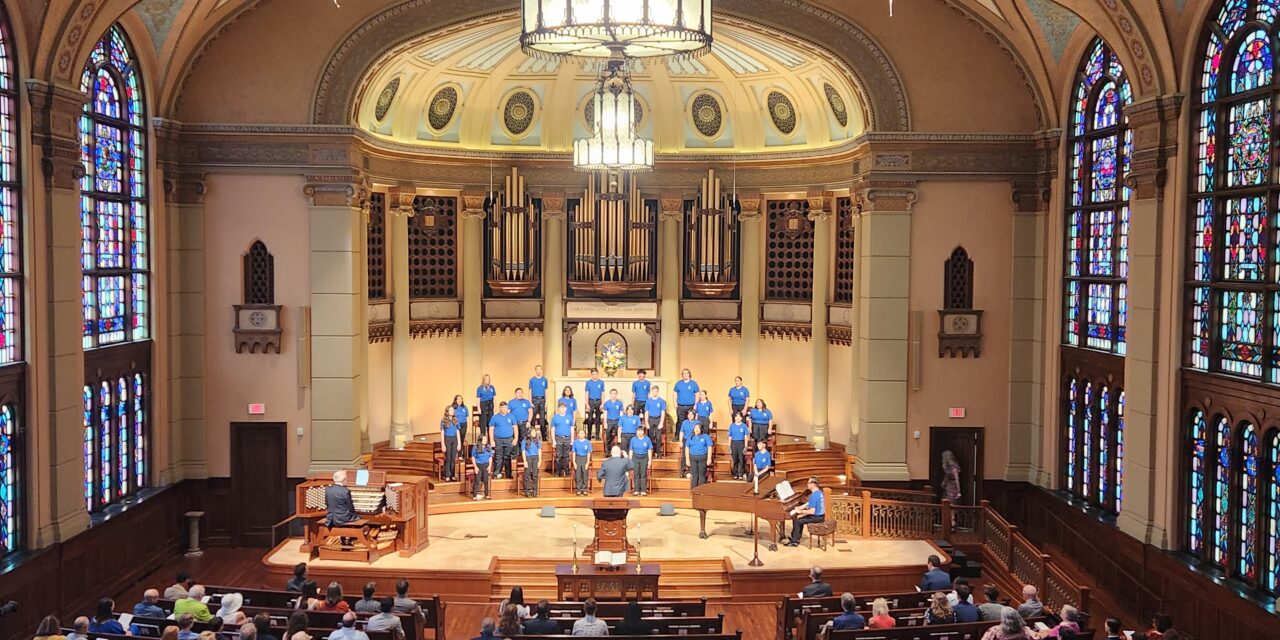Constructing Successful Student Choirs for the Second Quarter of the 21st Century
Part One – Daunting
Part Two – Beyond Mere Possibility
Part Three – Listening
Part Four – Leading
Part Five – Following
Part Six – Courage vs. Shyness
Part Seven – Collaborating
Part Eight – Goodbye to Me First
Part Nine – Choral Music … Much More Than Singing
Part Ten – Revealing Riches and Building Lives
FOLLOWING
Some of today’s well-known leaders have never really had the experience of being followers. It seems that certain talented, winsome young people rise to the top of leadership in their peer groups and then continue to ramp up without a break into the elevated leadership of even people older — sometimes much older — than they. It is true in business, academia, business, sports, and yes, even within vocational ministry.
Many components factor into this early leadership phenomenon. Strong education and degrees obtained early, young leadership opportunities, family financial advantages, a display of immense and/or unusual talent, growing up inside an inner circle or within an elite structure of movers and shakers — these circumstances and more account for why some leaders rapidly rise to the top and seem to stay there for their entire lives.
These cases notwithstanding, I submit that every potential hotshot will eventually become a much better leader (instead of just a star or celebrity) if they have had some real experience as a follower. To have always been an out-front leader means that there are very likely some important formative gaps, flat sides, or blind spots in terms of empathy, reality checks, compassion, and/or basic understanding of human nature in the young leader’s background.
We have all heard the old adages, “she paid her dues” or “he earned his stripes” or “they spent their fair share of time in the trenches getting to where they are today.” There is actually something to that, the unglamorous, grass-roots experience which illuminates and enlightens future leadership as nothing else can.
Following is viewed by most of us as a purely passive activity, performing only manual or “menial” labor, checking one’s brain at the door and just doing as you are told. To be sure, there are many followers who confine their work in the trenches to that narrow field of vision. They punch the clock and survive each day. They often feel powerless, insignificant, hopeless, and always struggling for energy to make it through the next hour. They search for excuses to miss work, practice, whatever. This is what it means for some people to follow. B-o-r-i-n-g!
But for others (spoiler alert: it’s the very ones who will emerge as the new generation of leaders), something very different it going on mentally, emotionally, and even spiritually. These followers somehow naturally sense the power of their follow-ship. Mentally engaged, emotionally charged, socially invested, and filled with young adolescent hope, these young leaders (such as the brightest students with high emotional IQs in our student choirs) seem to intuit an accurate assessment of reality which includes the following innate realizations: 1) accomplishing the assignment with excellence is crucially important in multiple layers, 2) contributing meaningfully to the group also builds their own futures, 3) engaging and investing in the choir builds badly needed social decorum, communication competency, and leadership skills. The real leaders emerging from our groups seem to know these things in their DNA, even when they cannot express them in words or organize them into catchy soundbites.
Furthermore, these “followers,” even as they follow, are actually beginning to lead. At every imaginable turn, they are attuned to observing, listening to, watching, and taking notes from the model of our leadership they see being played out in front of them. They are learning both positive and negative lessons from what we show them, and these lessons will inform, influence, and direct their thinking as they gradually emerge from following into leading. For better or for worse, our modeling with them seeps through their pores and into their attitudes and dispositions and affects their core outlooks on life.
It is also important to remember that, within this “leadership institute” we call youth choir, the followers will also contain subgroups of 1) passive followers, usually bringing up the rear in all things musical, programmatic, and especially emotional, 2) ho-hummers who will seldom if ever cause a moment’s trouble but somehow never catch the vision of themselves advancing or personally growing within this system, 3) the curious followers, the ones who ask a lot of exhausting, honest and perhaps even obnoxious questions … let us give them plenty of credit, because they actually care enough to ask, 4) the eyes-just-now-opened followers who have suddenly awakened after adolescent fog to see the vision of just how cool this whole enterprise is, and, 5) the passionate followers who actually see themselves making a difference in the group while simultaneously envisioning the group having transformational impacts upon their own lives. Furthermore, they see the group substantively impacting their leadership development, preparing them for high success in their relationships and future careers (whether in music or any one of a thousand other vocations). Again, they intuit these things realities, although they are not able to adequately verbalize them at the time.
We also have leaders IN the group. These can be curious followers, eyes-just-now-opened followers, or passionate followers. These are the students who are becoming aware of their leadership potential. They are finding that they are effective and comfortable communicating some important items to/with their peers. These leaders IN the group are often spotted as highly committed participants who begin small — most often, with their own sections — to take very measured self-appointed leadership roles calling forth the sub-group’s best efforts. Leaders IN the group have unique ways of holding feet to the fire and getting “small” things accomplished interpersonally, issues that even directors sometimes cannot reach.
Finally, we have leaders OF the group. These are almost always from the passionate follower camp. They are the fairly rare juniors or seniors who have “paid their dues” and, over time, dedication, and experience have earned the deep bedrock respect of their peers. When they speak — even a little — the choir listens. When they lead, whether by word or action, the choir quietly and surely follows. They ARE the leaders OF the group. There are times for all of us directors when we may go a year or two without any leaders OF the group. This is particularly true in new startups, rebuilding years, and the years following particularly brutal graduations. In that case, the director and choir leadership must fill that role, but it is never as good as when a respected student or two has ascended to fill that position.
Of course, the idea is to move every student forward on the continuum. At whatever point the student has entered the group, it is our responsibility and, indeed, our honor to help empower each student to move upward in their own personal development: socially, emotionally, mentally, spiritually.
Our mission is not to gather students for entertainment or to toss them cheap and shallow adrenaline fixes by way of fun choir tours and elite travel clubs. Yes, travel and fun are certainly critical parts of many programming models, including the YouthCUE model. However, work in the trenches in weekly rehearsals, interpersonal relationship building, preparing for important singing events, planning and adapting and adjusting, and expressing consistent, unconditional love — these are some of the important elements which offer transformational ministry to today’s adolescents.
Jesus often said, “Follow me.”
And those who followed him developed from followers into disciples into leaders.
As we follow Christ with our whole hearts, leadership emerges. At YouthCUE, we believe our students will follow our lead … our lead to be effective followers who produce other strong leaders.
Randy Edwards
[email protected]







